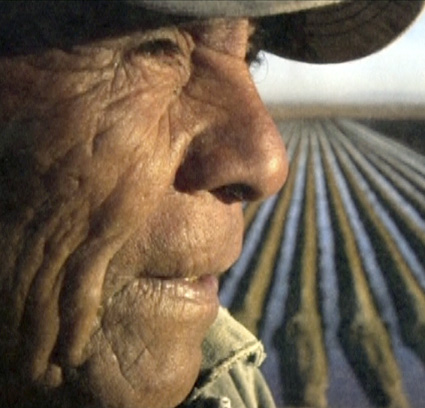A groundbreaking new documentary series crisscrosses the country exploring how the social conditions in which Americans are born, live and work profoundly affect health and longevity, even more than medical care, behaviors and genes. This four-hour television and DVD series challenges fundamental beliefs about what makes Americans healthy – or sick – and offers new remedies for an ailing society.
EPISODES
IN SICKNESS AND IN WEALTH
What are the connections between healthy bodies and healthy bank accounts? “In Sickness and In Wealth” travels to Louisville, Kentucky, not to explore whether health care cures us but to see why we get sick in the first place. The lives of a CEO, a lab supervisor, a janitor, and an unemployed mother illustrate how social class shapes access to power, resources and opportunity. Solutions being pursued in Louisville and elsewhere focus not on more pills but on better social policies and more equality.
WHEN THE BOUGH BREAKS / BECOMING AMERICAN*
When the Bough Breaks examines the enigma of the Black-white infant mortality gap. Why do infant mortality rates among African Americans remain more than twice as high as white Americans? Although birth outcomes are generally better for those with higher education and income, Black women with college degrees are still more likely to give birth prematurely than white women who drop out of high school. Researchers are circling in on a provocative explanation: the chronic stress of racism can become embedded in the body, taking a heavy toll on African American families and their children even before they leave the womb.
Becoming American sheds light on the shifting health status of newly arrived Latino immigrants. Recent Mexican immigrants, although typically poorer, tend to be healthier than the average American. But the longer they live here, the worse their relative health becomes, even as their economic status improves. This “Latino paradox” places their children at high risk for obesity, heart disease, and mental illness. What is it about new immigrant communities that shield people from poor health? How can we all learn and benefit from that knowledge? And what erodes this protective shield over time?
*This program is available in Spanish.
BAD SUGAR / PLACE MATTERS
Bad Sugar explores the causes and effects of diabetes within two Native American communities. The Pima and Tohono O’odham Indians of southern Arizona have arguably the highest rates of Type II diabetes in the world. A century ago, the disease was virtually unknown here. But the diversion of river water destroyed their farms and traditional ways, plunging local tribes into poverty and dependence. A sense of “futurelessness” took hold. And so did diabetes. Decades of medical interventions have not stemmed the tide among Native Americans and globally. But in 2004 the Pima finally won back their water rights and are beginning to farm again. Leaders are cautiously optimistic that community empowerment, along with sustainable and culturally appropriate development, can restore prosperity, hope and health.
Place Matters connects the dots between health, wealth and zip codes. Why is your street address such a good predictor of your health? Latinos and Southeast Asians like Gwai Boonkeut have been moving into long-neglected urban neighborhoods like those in Richmond, CA. Segregation and lack of access to jobs, fresh foods, safe parks, and affordable quality housing have been harmful to long-time African American residents, and now the newcomers’ health is suffering too. In the Pacific Northwest, a similar neighborhood, High Point in West Seattle, is emerging as a promising alternative. Community members, local government, and developers took a radical approach, using federal funding to rebuild a mixed-income community with health as its focus.
COLLATERAL DAMAGE / NOT JUST A PAYCHECK
Collateral Damage traces the health challenges of Marshall Islanders from the South Pacific to Springdale, AR. The lives and health of Marshall Islanders in the South Pacific were disrupted when the U.S. used their outer islands for extensive nuclear testing after WWII. But the dislocation set in motion by globalization and the presence of the Ronald Reagan Ballistic Missile Testing Site may be taking an even greater toll. Their traditional way of life destroyed, many Marshallese, desperate for jobs at the U.S. base, crowd the nearby island of Ebeye, where tuberculosis and other diseases are fed by poverty and squalid conditions. Today, many Marshallese have sought brighter prospects in the unlikely town of Springdale, AR, bringing a legacy of poverty and powerlessness with them.
Not Just a Paycheck explores the heavy toll of layoffs and job insecurity in western Michigan. When Electrolux shut down the largest refrigerator factory in the country and moved it to Juarez, Mexico in search of cheaper labor, it turned upside down the lives of many of the 3,000 employees. Hospital visits in Greenville, MI more than tripled as a result of depression, alcoholism, and domestic abuse. And heart disease and mortality are predicted to rise. Hardly a ripple was felt when Electrolux shut down one of its plants in Sweden, where social policies are based on an ethos of shared responsibility that protects workers from the impact of globalization.

